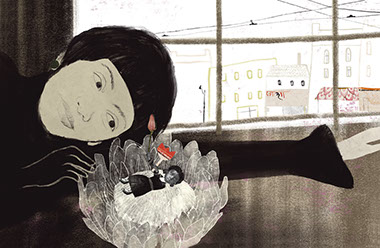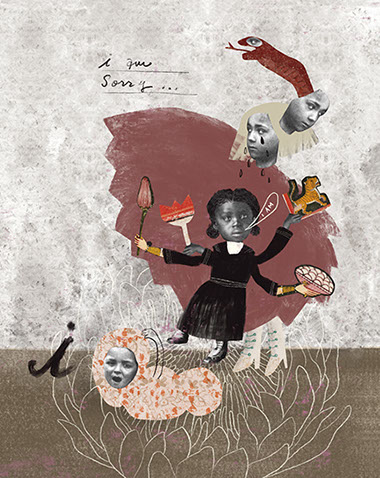
Unleashing the Power Within:
Cultivating Self-Empathy in
Children's Emotional Growth
By Zainab Haseeb
Discover the power of empathy for the self and its impact on children's emotional development. This article explores how empathy evolved during different developmental periods, from building self-awareness in early years to deepening self-reflection and moral understanding in later stages.
What is empathy for the self?
Empathy is often associated with understanding and caring for others, but it is equally important to extend that empathy towards ourselves. Empathy for the self involves treating oneself with the same compassion, understanding, and care that we would offer to a friend in need. It means acknowledging and accepting our own feelings and experiences, and demonstrating self-love and kindness. By practicing empathy for ourselves, we can gain a deeper understanding of our thoughts and actions, leading to personal growth, increased happiness, and enhanced self-confidence.
How empathy for the self develops during different developmental periods
Birth to 2 years: Building a sense of self-awareness
During the first two years of life, toddlers begin to develop their sense of identity in relation to the world around them. Around 18 months, they can recognize themselves in a mirror, and by the age of two, they can describe themselves physically, such as saying, "I am big" or "I am a boy." This period also witnesses the emergence of early signs of guilt. When a toddler engages in behaviour they know they shouldn't, they may display their guilt through actions like looking away, crying, or getting upset.
To support empathy for the self during this stage, adults can create a nurturing environment that acknowledges and validates the child's emotions by providing reassurance and guidance without harsh criticism. This way, adults can help children understand the consequences of their actions while helping them maintain a positive sense of self-worth.
3 to 5 years: Understanding one's own emotions and the emotions of others
Between the ages of three and five, children become more capable of differentiating their own needs, interests, and abilities from those of others. They can better understand and articulate their own emotions, as well as recognize the emotions of those around them. This increased emotional awareness allows them to experience guilt more profoundly when they perceive that they have done something wrong. For instance, if a child grabs another child's toy, they may feel a stronger sense of guilt because they can imagine how they would feel if their toy was taken.
During this developmental period, adults can support empathy for the self by praising children's efforts and character when they engage in kind and considerate behaviour. By emphasizing their positive qualities and reinforcing the importance of empathy and kindness, adults foster a positive self-identity and encourage children to consider the impact of their actions on others.
6 to 8 years: Deepening self-reflection and moral understanding
Between the ages of six and eight, children's self-reflection and perspective-taking abilities continue to develop. They gain a more complex understanding of right and wrong, and guilt tends to become more stable. For example, they might say something like, “I know I shouldn't take things that don't belong to me”. However, individual differences and situational factors can influence a child's ability to engage in self-reflection and guilt. Intense emotions like anger or sadness may hinder their capacity to effectively consider someone else's perspective.
What’s the difference between guilt and shame? Read more about this >>>.here
To support empathy for the self during this stage, adults can promote healthy moral development by linking children's actions to their consequences. By explaining the impact of their behaviour on others and focusing on actions rather than character, adults encourage children to take responsibility for their actions without negatively labeling them. For example, instead of saying, "You're a mean brother for hurting your sister's feelings," it is more beneficial to say, "When you knocked down your sister's toys, it hurt her feelings."
By adopting these approaches, adults can contribute to the development of empathy for the self in children, fostering their emotional intelligence, self-compassion, and moral growth. Empathy for the self is a crucial aspect of emotional development. Just as we extend empathy and compassion to others, it is essential to treat ourselves with the same kindness.
How do I practice empathy for myself? Check out our top strategies in our article, >>>.Empathy for the Self: A Practical Guide for Caregivers and Educators

